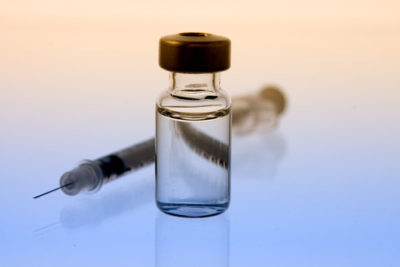Could there be intermittent fasting benefits? Though the pros and cons of intermittent fasting, or IF, have been bandied about for decades, evidence shows it may be beneficial in the realms of weight loss, improved bodily functions and more. In fact the National Institute of Health suggests alternate-day fasting may even prolong one’s lifespan.* As far back as 1917, and more popularly the 1930s, laboratory research on rodents supported the theory of increased life expectancy based on considerable calorie restriction.
While the universal concept of fasting may be an all-or-nothing kind of event, actually fasting exists in many forms including juice fasts, raw veggie and fruit fasts, etc. The popular 5:2 Fast Diet, Alternate Day Fasting Diet and HCG Diet are also considered forms of fasting.
On the 5:2 Fast Diet, followers consume a prescribed (average) amount of calories five days a week while reducing to about 500 calories a day for women/600 for men the other two days. Studies show that with the 5:2 Fast Diet or other forms of fasting, unless you overeat at other meals to compensate, the pounds will stay off.
On the Alternate Day Fasting Diet, first day eating (considered a fasting day) consists of one-fifth of your typical daily food intake. This may be in the form of fewer calories from practicing extreme portion control, or as the diet suggests, using meal replacement shakes or bars which contain the vitamins and nutrients that may become sparse when reducing calories. On the second day, normal eating is resumed. The same protocol is carried out for two weeks, and in the third week fasting day substitute food products should be eliminated, replaced with real food but at about 20 percent of what is on normal days.
Intermittent Fasting Benefits On the HCG Diet
Participants follow a strict 500-calorie-a-day diet, with injections of hCG—or human chorionic gonadotropin (a hormone produced by the placenta). The hormone mitigates any feelings of hunger, headaches, fatigue or muscle wasting (sarcopenia) that may occur during other forms of fasting, and which can sabotage the dieter’s efforts. Because the diet is limited to 30-45 days, proponents have found their resolve and their health remain fully intact.
During fasting the following changes occur in the body:
- Insulin levels drop, which facilitates fat burning.
- Blood levels of human growth hormone, or HGH, increase significantly. In fact during a two-day fast, an NIH study found levels increased 5-fold. Higher levels of HGH catalyze muscle mass gain and fat burning.
- Studies have shown the body induces important cellular repair processes, including removing waste material from cells.
- A drop in blood pressure is also considered a positive byproduct of intermittent fasting, especially if hypertension is an issue.
- Reduced cholesterol has also been noted during fasting regimens and afterwards, if the subject does not resume unhealthy eating patterns.
Overall, weight loss occurs through decreased intake of calories during fasting. As the body is unable to draw fuel from food sources at this time, it relies on glucose which is stored in the liver. When that supply is depleted, the body begins to burn fat as a source of energy. This process begins about 8 hours following the last meal. Research reveals that detoxification also occurs during fasting, as toxins stored in fat are dissolved and removed.**
Intermittent fasting benefits can also include reduction in the condition of insulin resistance. This means lowering blood sugar levels and thereby protecting against Type 2 diabetes—a disease that currently affects 29.1 million people in the United States. It is also shown to reduce oxidative stress and inflammation, with the root of disease most often attributed to inflammation.
Calorie restriction/intermittent fasting has also been noted in some animal laboratory studies to decrease or delay the onset of age-related diseases including lymphoma, breast and prostate cancers, hypertension, stroke, diabetes, cardiovascular disease, nephropathy (kidney damage from diabetes), Alzheimer’s, Parkinson’s and Huntington’s. Additionally, in human subjects, fasting has been shown to mitigate some of the side effects of chemotherapy.
Intermittent Fasting Benefits for the Brain
Brain health is predicated on neuronal autophagy, or “self-eating.” This is the process by which cells recycle waste material, downregulate (the act of reducing or suppressing) wasteful processes and repair themselves. In short, without this process, the brain does not develop properly nor does it function the way it should. Studies show that intermittent fasting benefits include increased levels of brain-derived neurotrophic factor, or BDNF. This is a protein that interacts with neurons in the hippocampus, cortex and parts of the brain that impact memory, learning and higher cognitive function. This protein helps existing neurons survive. Patients with cognition-related diseases such as Alzheimer’s and other forms of dementia have been shown to be lacking in ample BDNF, again said to be boosted by the process of fasting.
Turn the Light On for Intermittent Fasting
From a spiritual standpoint, the merits of fasting have been documented for centuries. The theory of a body without food, which means the digestive system is at rest and not using up a lot of energy, is said to result in a truer connection to nature, meditation, yoga and other healing pursuits. Practitioners of fasting (referring here largely to juice fasts or fasting with water) claim that beyond the second or third day, when hunger, headaches and the like subside, feelings of clarity and euphoria are quite common.
Depending on the type of fast (either all-out food deprivation or extreme calorie reduction), the downside is that without proper self-monitoring and just plain good judgment, dehydration can occur. Also, if you are accustomed to consistent meals with snacks in between, fasting (hunger pangs; headaches) can interfere with sleep, resulting in sleep deprivation. Going without food can lead to a diminution in stomach acid, necessary to digest food and destroy bacteria. But studies show that smelling food or even thinking about it can signal the brain to tell the stomach to produce more acid, resulting in heartburn. And, medical professionals have gone on record stating that while intermittent fasting may lead to weight loss, it is actually fluid loss, which is replaced once normal eating is resumed.
Intermittent Fasting Benefits Sources:
- *Alternate-day Fasting in Nonobese Subjects
- 10 Health Benefits of Intermittent Fasting
- GH Burst Frequency and Secretion During a Two-day Fast in Normal Men
- Short-term Fasting Induces Neuronal Autophagy
- Google Results: Statistics for Type 2 Diabetes in US
- **Fasting: Health Benefits and Risks
- The Effects of Intermittent Fasting on Human and Animal Health
- Why Fast? Part Four – Brain Health
- Meal Skipping Helps Rodents Resist Diabetes, Brain Damage







